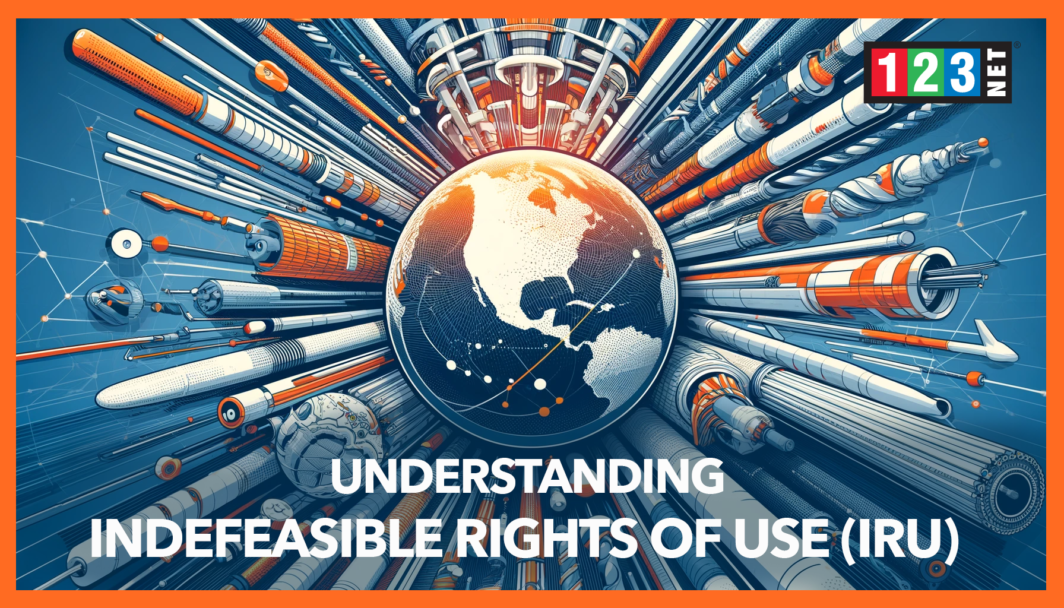
Introduction
Indefeasible Rights of Use (IRU) are a crucial concept in the realm of telecommunications and data transmission, providing long-term access to network infrastructure. These rights are indispensable for ensuring reliable and continuous connectivity, especially in an era where data transmission and global communication are paramount. This article aims to provide a comprehensive understanding of IRUs, exploring their definition, importance, key components, applications, benefits, challenges, and real-world examples. By delving into these aspects, readers will gain valuable insights into how IRUs operate and their significant role in telecommunications infrastructure.
What are Indefeasible Rights of Use?
Indefeasible Rights of Use (IRU) refer to the contractual rights to use a specific portion of a telecommunications network, such as fiber optic cables or submarine cables, for a specified duration, typically spanning 20 to 30 years. The term “indefeasible” implies that these rights cannot be revoked, ensuring the holder’s guaranteed access to the network infrastructure. IRUs originated from the need for stable, long-term connectivity solutions in the telecommunications industry, particularly as the demand for data transmission and international communication grew.
Legally and commercially, IRUs are binding agreements that outline the responsibilities and rights of the parties involved. They often involve substantial financial investments, reflecting the long-term commitment and strategic importance of securing network capacity. These agreements are pivotal for telecom carriers and service providers, allowing them to plan and expand their network infrastructure with confidence.
Key Components of Indefeasible Rights of Use
Duration and Terms
The key components of IRU agreements include the duration and terms, transferability, and financial considerations. Typically, IRU agreements last for 20 to 30 years, providing a long-term horizon for network planning and utilization. The terms of these agreements are meticulously defined, detailing the specific network assets, maintenance responsibilities, and performance standards. This clarity ensures both parties understand their obligations and the extent of the usage rights granted.
Transferability and Assignment
Transferability and assignment of IRUs are crucial aspects, allowing the rights holder to transfer or sell their IRU to another party. This flexibility is beneficial for adapting to changing business needs and market conditions. For instance, if a company no longer requires the same level of network capacity or decides to divest certain assets, they can transfer their IRU, thereby recouping some of their initial investment. This adaptability makes IRUs a versatile asset in the dynamic telecommunications industry.
Financial Considerations
Financial considerations play a significant role in IRU agreements, with costs structured around the initial capital expenditure and ongoing maintenance fees. The financial models often include lump-sum payments or periodic installments, reflecting the high initial investment and long-term benefits. This investment secures the rights holder a fixed amount of network capacity, providing cost predictability and protection against future price increases. Additionally, ongoing maintenance fees ensure the network infrastructure remains operational and meets performance standards.
Applications of Indefeasible Rights of Use
Telecommunications Infrastructure
IRUs are extensively used in telecommunications infrastructure, particularly in submarine cable systems and fiber optic networks. Submarine cables, which connect continents and facilitate international data transmission, heavily rely on IRU agreements to ensure long-term access to these critical communication links. These underwater cables form the backbone of global internet and communication networks, making IRUs vital for maintaining uninterrupted international connectivity. Similarly, fiber optic networks, which are essential for high-speed data transmission, benefit from IRUs by guaranteeing bandwidth and network capacity. This assurance is crucial for telecom carriers aiming to meet the increasing demand for data services.
Data Centers and Cloud Services
In data centers and cloud services, IRUs are essential for ensuring reliable and scalable connectivity. Data centers require robust and continuous connections to function effectively, supporting everything from cloud storage to streaming services. IRUs provide the necessary infrastructure to support these growing data demands, ensuring that telecom carriers and service providers can maintain high performance and reliability. This long-term access to network resources enables companies to offer uninterrupted services, which is vital for maintaining a competitive edge in the fast-paced telecommunications industry.
International Connectivity
IRUs play a critical role in enhancing international connectivity. By securing IRUs, telecom companies can ensure they have a guaranteed amount of network capacity across borders, facilitating seamless global communication. This is particularly important for multinational corporations and service providers that need to offer consistent services worldwide. The stability and reliability provided by IRUs help in building a robust global telecommunications infrastructure.
Benefits of Indefeasible Rights of Use
Long-Term Cost Savings
One of the primary benefits of IRUs is long-term cost savings for carriers and service providers. By investing upfront in IRU agreements, companies can secure network capacity at a fixed cost, shielding themselves from future price fluctuations and increasing demand. This approach provides financial predictability, allowing businesses to budget more effectively and avoid unexpected costs. The initial investment, while substantial, translates into significant savings over time as the cost per unit of network capacity is locked in. This guaranteed access to network infrastructure reduces the risk of service interruptions, ensuring continuous and reliable connectivity.
Enhanced Network Planning
IRUs also enhance network planning and scalability. With assured access to network resources, companies can strategically plan their infrastructure expansions and upgrades, accommodating future growth and technological advancements. This foresight is crucial in a rapidly evolving industry where the demand for higher bandwidth and improved services is constant. IRUs provide a stable foundation upon which telecom carriers can build and expand their networks, ensuring they are well-prepared to meet future needs.
Efficient Bandwidth Management
The stability provided by IRUs allows for more efficient bandwidth management and optimized utilization of network assets. Companies with IRUs can allocate bandwidth more effectively, ensuring that critical services receive the necessary resources without overextending the network. This optimization leads to better performance and user experience, as well as reduced operational costs. Furthermore, having a predictable and stable network capacity enables telecom providers to offer more consistent and reliable services to their customers.

Challenges and Limitations of Indefeasible Rights of Use
Despite their advantages, IRUs come with challenges and limitations. High initial investment costs can be a significant barrier. It is requiring substantial capital outlay that may not be feasible for all organizations. Legal and regulatory challenges also arise. As IRU agreements must comply with varying international laws and regulations, adding complexity to their negotiation and execution.
Managing and maintaining IRU agreements can be complex, involving coordination between multiple parties and adherence to contractual obligations. Additionally, there is a potential for underutilization of assets. This is where the network capacity secured through IRUs may not be fully utilized, leading to inefficiencies and wasted resources.
FAQs
- What is an IRU in telecommunications? A: An IRU is a contractual right to use a specific portion of a telecommunications network, such as fiber optic or submarine cables, for a long-term period.
- How long does an IRU typically last? A: IRU agreements usually last between 20 to 30 years.
- Can an IRU be transferred or sold? A: Yes, IRUs can often be transferred or sold to another party, depending on the terms of the agreement.
- What are the financial benefits of an IRU? A: The financial benefits include long-term cost savings, fixed network capacity costs, and protection against future price increases.
Conclusion
Indefeasible Rights of Use (IRU) are vital for the telecommunications industry, providing long-term, secure access to network infrastructure. By understanding the key components, applications, benefits, and challenges of IRUs, telecom carriers and service providers can make informed decisions. This can enhance their network capabilities and support global connectivity. The future outlook for IRUs remains positive, with ongoing advancements in telecommunications infrastructure and increasing demand for reliable data transmission. Understanding IRUs is essential for navigating the complexities of modern telecommunications and leveraging their full potential for strategic advantage.




